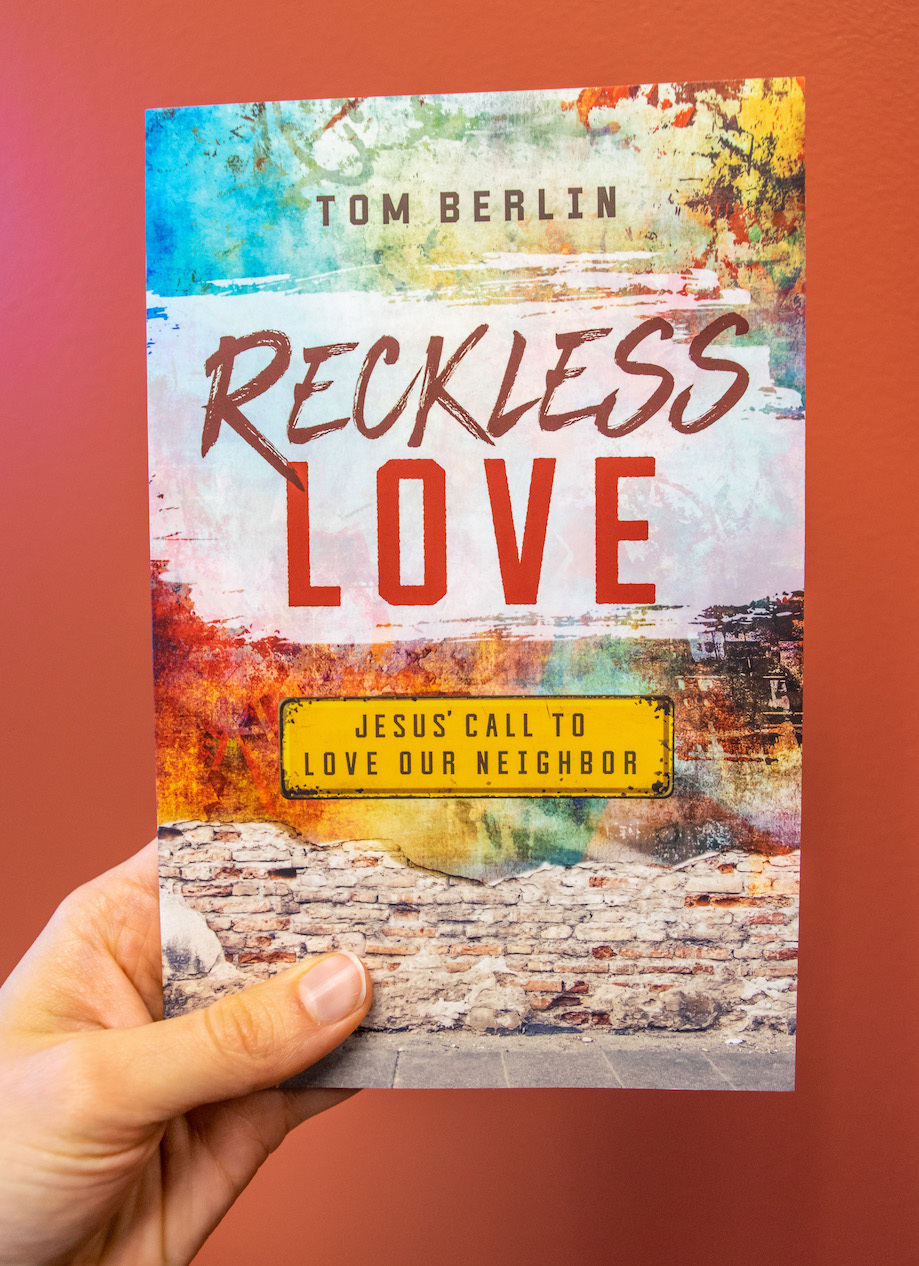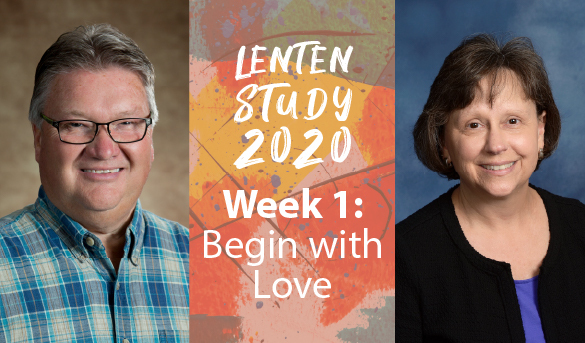
Reckless Love, week one: Begin with Love
View / download text of this message here here.
View / download the video here.
Jesus said to the disciples in the Greatest Commandment, "You shall love your neighbor as yourself" (Matthew 22:39). Tom Berlin, writing in Reckless Love, challenges each of us to love God and our neighbor as a virtuous cycle. In chapter one, Berlin calls us to question our assumptions and fears about loving God and our neighbor.
Rev. Kermit Culver, who serves as the district superintendent for the Northwest District in the Dakotas Conference, and Rev. Susan Nienaber, who serves as the district superintendent for the Big Waters District in the Minnesota Conference share some thoughts about chapter one, Begin with Love.
Rev. Kermit Culver: Hey Susan, it is good to see with you and be with you and be together to talk a little bit about the book by Tom Berlin, Reckless Love. We are all using this book across the connection for our Lenten study. We have been asked to talk about chapter one. I am excited to be able to do that with you and see what you saw in this introductory chapter of the book. It is a good book with a lot of questions throughout the book. In this first chapter, the main point of discussion is the Greatest Commandment—"You shall love the Lord your God with all your heart, and with all your soul, and with all your mind. This is the greatest and first commandment…You shall love your neighbor as yourself. (Matthew 22:37-39, NRSV).

It is about love, so the title of the first chapter is Begin with Love. Jesus was asked this question, what is the greatest commandment? Whenever I read or hear that I think it is so human; we are always trying to reduce everything down to the barest minimum—What is the least thing I have to do to get by? What is the greatest commandment?
Berlin's understanding is about loving God on the one hand and loving our neighbor on the other. Those two concepts of love are blended. There are not hierarchical. We, as humans, tend to look at scripture, and the great commandment, linearly or hierarchically. This one is most important, and this one is secondary.
The comment from this chapter that I like the most is: "The link that Jesus made between these to commandments is not linear, but circular, (virtuous cycle, p.26)." You really cannot have one without the other.
Rev. Susan Nienaber: I do think a lot of people of faith do think of this as a hierarchy. That we begin by loving God and being obedient to spiritual practices and disciplines, somehow that is supposed to make us better with other people.
Berlin does not talk about that one thing has to come before the other. He talks about sometimes starting with loving other people brings us back to a different type of communion with God.
I immediately go to where the rubber hits the road. What do we do with people we find difficult to love? We all have them. People who get under our skin, or we don't have as much patience. Yet the commandment is clear—love God and love others.
That is the place where things get real. What is being faithful to those commandments mean when I have someone in front of me that tests me? What is that we are called to do?
Barbara Brown Taylor speaks to this. How do you love someone when you need to spring free from your baggage? (p. 24)
Rev. Kermit Culver: So it is about boundaries? Is there a case where putting your life at a distance in a relationship, boundaries from others, is the most loving thing you can do?
Rev. Susan Nienaber: That could be part of it. Some people who might be abusive or have problems with addiction, it isn't very easy to form a relationship with people in those situations. There is this balance between what is self-care and what is loving the other person. Where is that line between, when does loving that other person do significant damage to me, and how much am I willing to love?
Loving others is a tall order. Berlin does an excellent job of outlining what that means. He talks about spiritual practices reading the Bible, prayer, acts of service, worship, baptism, communion, silence– those kinds of things. When you think of loving God, what comes to your mind?

Rev. Kermit Culver and Rev. Susan Nienaber met to discuss chapter one, Begin With Love. Illustration by Karla Hovde.
Rev. Kermit Culver: The first thing that comes to my mind is the classic disciplines of the faith. Also, there are times when this command makes me intentional about how to look at people and how I treat people.
There was a time in my life when I was a janitor. I was on a maintenance crew while I was in college. People treated me differently when they saw me in that role than they did when I was leading Bible study, chapel, or captain of the football team.
I have had a sensitivity to service people throughout my life. I probably tip more than I should. It is my lens. This commandment reminds me to look, in a practical way, at people as real. People that God loves, but as people, I am also called to love.
Rev. Susan Nienaber: Berlin talks about if we begin each day with love, that is the orientation that sets the course for the day. I was thinking beyond that. Given the fact that we all have people in our lives that are more challenging than others, what would a spiritual exercise look like? A practice of choosing someone in your life who is challenging, and as Berlin talks about engaging in conversations, assumptions, and actions.
This week, if people would choose someone difficult in their life, and start to write down all of their assumptions about this person. I am convinced that sometimes we do not see things the way they are. We see things the way we are. So those assumptions we hold are giving us information about ourselves.
Berlin also uses a phrase in the book, "You will think that God is just messing with you because you will find some of them difficult (p.30)." God is pushing us, challenging us, to activate this virtuous cycle,
When I am struggling with somebody, I pray about it. I do make a list of my assumptions. I ask, is that my assumption? Do I have any data to validate that? I then go to people around me who know me well. I say I am struggling with this person, you know me well, how am I getting hooked by this?
I have found that people's behavior makes sense in their world, given the story that they tell themselves. If I take more time to understand that person's story, and the way they see the world, I will see the logic in it. I may still see their perspective as not helpful or irritating, but it is easier to be empathetic.
Rev. Kermit Culver: Thanks for your insights and thoughts. That is practical. I hope our discussion is helpful to folks as they begin this Lenten journey.

